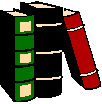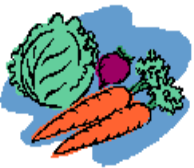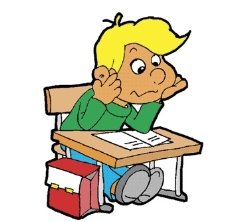Цікаві різнорівневі завдання на уроках англійської мови.
Вправи для тренування, закріплення та контролю знань, умінь та навичок учнів. Завдання подані у 4 рівнях складності і відповідають вимогам чинної програми з іноземних мов, затвердженої Міністерством освіти, молоді та спорту України.Посібник призначений для учнів загальноосвітніх шкіл та учителів.
1
Кравчук В.В.Цікаві диференційовані завдання на уроках англійської мови. – 51с.
Вправи для тренування, закріплення та контролю знань, умінь та навичок учнів. Завдання подані у 4 рівнях складності і відповідають вимогам чинної програми з іноземних мов, затвердженої Міністерством освіти, молоді та спорту України.
ЗМІСТ
|
№ п/п |
Частини книжки |
Сторінка |
|
|
Вступ |
4 |
|
|
РОЗДІЛ 1. Завдання до теми The Role of Books in our Life |
5 |
|
|
РОЗДІЛ 2. Завдання до теми Appearance |
10 |
|
|
РОЗДІЛ 3. Завдання до теми Meals |
14 |
|
|
РОЗДІЛ 4. Завдання до теми School |
17 |
|
|
РОЗДІЛ 5. Завдання до теми Animals |
20 |
|
|
РОЗДІЛ 6. Завдання до теми Profession |
24 |
|
|
РОЗДІЛ 7. Завдання до теми Clothes |
28 |
|
|
РОЗДІЛ 8. Завдання до теми Health. Illness. Disease |
32 |
|
|
РОЗДІЛ 9. Завдання до теми Shopping |
38 |
|
|
РОЗДІЛ 10. Завдання до теми Sport and Games |
42 |
|
|
РОЗДІЛ 11. Завдання до теми The Role of Mass Media in our Life |
45 |
|
|
Використана література |
50 |
Вступ
Збірник вправ з англійської мови розроблений відповідно до шкільної програми з іноземної мови, охоплює передбачену нею тематику та орієнтований на чинні підручники «Англійська мова» авторів О.Д. Карп’юк, Л.В.Калініна, Л.В.Биркун. Завдання узгоджуються із критеріями оцінювання навчальних досягнень учнів за чотирма рівнями: початковий – І рівень; середнім – ІІ рівень; достатнім – ІІІ рівень; високим – IV рівень. Посібник містить вправи із 11 тем.
1. Роль книжок у нашому житті 7. Одяг
2. Зовнішність 8. Здоров’я
3. Їжа 9. Покупки
4. Школа 10. Спорт і ігри
5. Тварини 11. Роль засобів масової інформації в
6. Професії нашому житті.
Різноманітні завдання для вивчення лексики, закріплення граматики, розвитку навичок письма та усного мовлення роблять посібник цікавим та змістовним. Вони мають на меті допомогти учителям відчути прогрес у навчанні, усвідомити свої сильні та слабкі сторони, навчити прийомів самоконтролю та вдосконалення знань.
Завдання кожного рівня градуйовані за ступенем складності, значно полегшать роботу вчителя. Вони розраховані на індивідуальний підхід до кожного учня. Учитель може довільно добирати завдання за змістом та кількістю з кожної теми.
Вправи посібника можуть використовуватися для різних видів тематичного контролю на уроках.
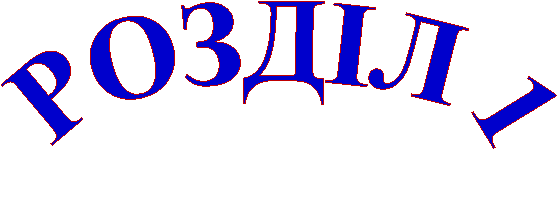
Завдання до теми
The Role of Books in our Life

Level 1.
1. Look at this list of book titles and match with their authors
|
“Alice in Wonderland” |
J.K.Rowling |
|
“The Adventures of Tom Sawyer and Huckleberry Finn” |
Pamela Travers |
|
“The Jungle Book” |
A.A.Milne |
|
“Winnie-the-Pooh” |
Lewis Carroll |
|
“Marry Poppins” |
Mark Twain |
|
“Harry Potter and the Sorcerer’s Stone” |
Robert L.Stevenson |
|
“Treasure Island” |
Rudyard Kipling |
2 . Do you remember whose characters they are?
|
Mickey Mouse |
is are |
Mark Twain’s |
character(s) |
|
Tom Sawyer |
Pamela Travers’ |
||
|
Mary Poppins |
Walt Disney’s |
||
|
Chippollino |
Jannie Rodari’s |
Level 2.
1. Match the pennames with the names of the writers
|
a) Olexii Peshkov |
|
|
b) Hanna Gorenko |
|
|
c) Anrie Marie Beyle |
|
|
d) Charles Lutwidge Dodgson |
|
|
e) Marie Fransois Arouet |
|
|
f) Mary Ann Evans |
|
|
g) Mykola Korneichuk |
|
|
h) William Sydney Porter |
|
|
i) Samuel Clemens |
|
|
j) Aurora Dupin |
2. Make up 5-7 sentences using the chart
|
Books about great people |
teach us |
to be kind and clever |
|
Books about famous travellers |
to be noble |
|
|
Books on history |
to love nature |
|
|
Books about birds and animals |
to be true friends |
|
|
Books about children |
to be brave and honest |
|
|
to be hard-working |
||
|
to be polite, to please other people |
||
|
Fairytales |
can teach us |
to understand the beauty of nature |
|
Fables |
to understand what is right and what is wrong |
|
|
Poems |
not to be lazy and naughty |
|
|
Stories |
not to boast |
|
|
Novels |
to love our Motherland |
Level 3.
1. Choose the explanation from the left column for the words in the right
|
1) poetry |
a) stories about something that will happen in future |
|
2) a romance |
b) poems |
|
3) a legend |
c) a story about love |
|
4) a biography |
d) a book about the spirit of a dead person |
|
5) science fiction |
e) an old story |
|
6) an adventure novel |
f) a book about something that happened in the past |
|
7) a horror novel |
g) a story of someone’s life |
|
8) a historical novel |
h) a book about a policeman who finds out how a crime happened |
|
9) a ghost novel |
i) a book about something exciting, dangerous etc. |
|
10) a detective novel |
j) a book about something terrible and frightening |
2. Read these abstracts and define what genre of literature are they: a detective story, a romance, a biography, an adventure story, a horror story
a) He was very frightened now. He got up and went to the bathroom to wash his face. He looked in the mirror and screamed. In front of him in the mirror, there was the head of a dead man. There were no eyes, and no nose, just deep black holes. Then suddenly the head came alive, and it began to laugh.
b) For the next thirty years the Duke and Duchess lived in Paris. They gave parties and travelled round the world, but they never went back to Buckingham Palace. When King George died in 1952 and Queen Mary died in 1961, Edward returned to Windsor for a few days. But Wallis stayed in France.
c) That night we went back to the house. When we saw Helen Stonor’s lights, Holmes and I got in quietly through the window. Then we waited silently in the middle bedroom. We waited or three hours and did not move. Suddenly we saw a light and heard a sound ...
d) “Run!” the man thought “Move! Faster! I can’t stop now.”
Over the man’s head the night sky was black and cold, and in front of him were the trees. Tall, dark trees ... “I can hide there”, the man thought. He looked behind him. He could see the lights. There were five or six men. Then he heard the dogs ...
Level 4.
Discussion about Books
|
Books, I believe, may be divided into three classes:
|
|
The third class is the most important. To tell people what to read is, as rule, either useless or harmful. But to tell people what not to read is a very different matter.
It is indeed necessary is this age of ours, an age that reads to much, that it has no time to admire, and writes so much that it has no time to think. Whoever will select “The Worst Hundred Books” and publish a list of them will give the rising generation a real and lasting service.
Discussion
- Do you agree that there are three classes of books: books you must read, books you must re-read and books you must not read at all?
- Which are the largest and the smallest class? Why?
- How do you choose a book to read?
- What books do you re-read?
- How do you know what books not to read at all?
- Do you agree that the list of the “Worst Hundred Books” may be useful?
- From the book review: “It is not a book to throw aside lightly, it is book to throw away with great force”. Have you ever read such books? What are they?
- Make your own list of best books to read and speak about your choice:
|
|
a) for children of; b) for teenagers; c) for men; d) for women; e) for old people. |
- Say whether you enjoy reading: fairy tales, adventure stories, detective stories, spy thrillers, classics, contemporary novels, poetry, non-fiction, biographies, memoirs, travel books, science fiction. Arrange them according to their importance to you.
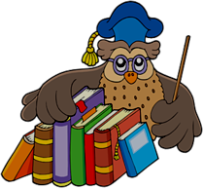
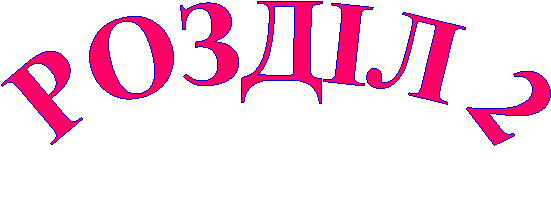
Завдання до теми
Appearance
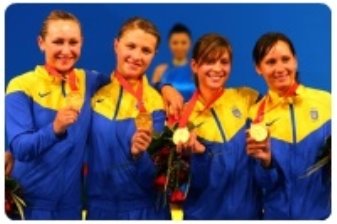
Level 1.
1. Read the text
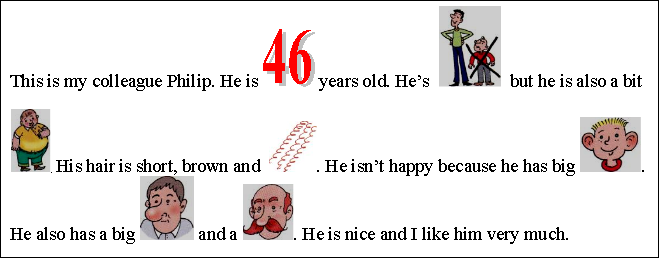
2. Match the questions and the answers.
|
1) |
How old is your brother's wife? |
A) |
No, straight. |
|
2) |
What is his hair like? |
B) |
She's young, slim and very pretty. |
|
3) |
Does he have curly hair? |
C) |
No, she's quite short. |
|
4) |
Is she tall? |
D) |
She's 28. |
|
5) |
What does your sister look like? |
E) |
It is fair and short. |
|
6) |
Is her daughter slim? |
F) |
No, she is rather plump.
|
3. Role-play „A Detective”
|
Role I. You are a detective. Ask your witness questions about the appearance of the man you are looking for. |
||
|
Role II. You are a witness. Answer the detective questions. |
||
|
Questions |
Answers |
|
|
1. Is the man tall or short? |
He is |
tall; very tall; short |
|
2. What colour is his hair? |
It is |
fair; dark; grey; red; brown |
|
3. What kind of nose does he have? |
He has a |
long; straight nose; turned-up |
|
4. What does he have on? etc. |
He has a |
coat; jacket on; suit |
Level 2.
Imagine an accident on the road. Use this plan to make up a story
|
The accident |
|
|
Date |
|
|
Time |
|
|
Colour of car |
|
|
The driver |
|
|
Clothes |
|
|
Age |
|
|
Style of driving |
|
|
The policeman |
|
|
Reaction |
|
|
Questions |
|
Level 3.
1. Put the necessary words.
|
Ann: |
"So what's new, Barbara?" |
|
Barbara: |
"I have a new colleague." |
|
Ann: |
"Oh good! What 1)___her name? ... or his name?" |
|
Barbara: |
"It's a man! His name is Daniel." |
|
Ann: |
"What is he 2)_____?" |
|
Barbara: |
"Oh, he is very nice." |
|
Ann: |
"What 3)______he look like?" |
|
Barbara: |
"He is a very handsome man. He has beautiful hair." |
|
Ann: |
"What colour 4)____his hair?" |
|
Barbara: |
"It's dark brown. And wavy." |
|
Ann: |
"Oh. 5)______he tall?" |
|
Barbara: |
"Yes, he is, he's about 190 centimeters tall. And he is slim!" |
|
Ann: |
"Oh Barbara... How 6) ___ is he?" |
|
Barbara: |
“About 65…” |
2. Put the words in the brackets in correct order.
Pattern. Why/did/grow/the beard/you. Why did you grow the beard?
1. Is/look/a sight/he/now. – Question
2. The old actor/the wig/wore/the/pate/to conceal. - Sentence.
3. Parents/the eyebrows/rise/their. When/hear/they/answer/strange/children/from. – Two sentences.
4. The stout woman/losing weight/has been/a week/for. – Sentence.
5. Two fangs/of the man/pulled out /were. – Question.
6. The hairdresser/the hair of the customers/tinted/today/has. - Question.
7. Manicured/were at the parlour/his nails. - Question.
8. They/to do/like/toe nails/their. - Sentence.
3. Try to guess a word in the sentence.
1. To dye hair with it. – Three letters, first letter – d, last letter – e.
2. To polish nails with it. – Ten letters, first letter – n, last letter h.
3. To brush hair with it. – Nine letters, first letter –h, last letter h.
4. To shave a beard or a moustache with it. Five letters, first letter – r, last letter – r.
Level 4.
Describe the appearance of any person.
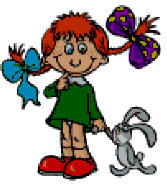
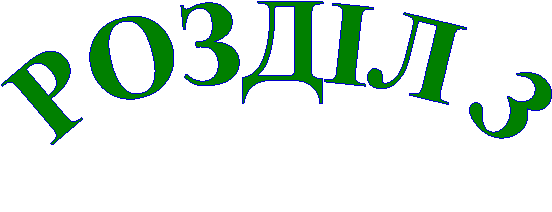
Завдання до теми
Meals
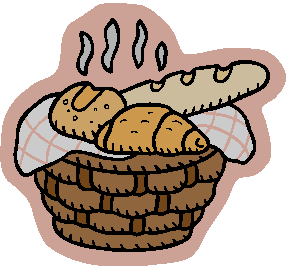
Level 1.
|
1. Insert the necessary words and you’ll find out how to brew tea: cold, tea, hot, teaspoon, cup, kettle |
|
||
|
A |
Boil the _________ water. |
||
|
B |
Warm the _________. |
||
|
C |
Put one ______ of ______ in the kettle for each person and one extra for the pot. |
||
|
D |
Pour ______ water into the kettle. |
||
|
E |
Let’s have a _______ of tea. |
||
Level 2.
Check your knowledge of the etiquette, in order not to be confused. Read the following rules and fill in the gaps. Use the word combinations in the box below.
|
|
|
|
|
|
|
|
|
|
|
|
|
|
|
|
|
9) ... to a red wine. |
18) ... by hands. |
Cheese is served …; hands are washed …; fruits are taken …; bread is never passed …; food is chewed …; dishes are not passed …; meat is eaten …; napkin is laid …; fish is cut …; wine is probed …; elbows are not put …; conversations are held …; champagne is served …; dessert is given …; a fork and a knife are put …; tea is not squelched …; legs are not crossed …; salad is eaten ….
Example: Elbows are not put on the table.
Level 3.
Make up a list of necessary products for cooking
|
|
Level 4.
Role-play “Cooking”
Pupils are suggested “to cook” something themselves. Pupils are given worksheets with a recipe. They should look at the ingredients and write how to make the dish.
Home Task: Write about your favourite meal
|
Carrot Biscuits Ingredients: 1 egg, 70 gr of oil, 70 gr of sugar, 1 cup of flour, 1 teaspoon of baking powder, some salt, 1 cup of boiled carrots, 4 tablespoons of raisins Use words: mix, add, roll, cut, bake, oven |
Apple Pie Ingredients: 1 eggs, 50 gr of oil, 60 gr of sugar, 2 cups of flour, 1 teaspoon of baking powder, some salt, 500 gr of apples Use words: mix, peel, break, add, chop, roll, cut, fry, bake |
|
Boston Burgers Ingredients: 750 gr minced beef, 1 clove of garlic, 5 nuts, 2 onions, 2 lemons, 4 buns, 3 tomatoes, 50 gr of cheese, 1 tin of pineapple, some salt, pepper, lettuce. Use words: mix, slice, fry, add, peel, toast, cut, chop, bread |
|
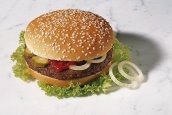
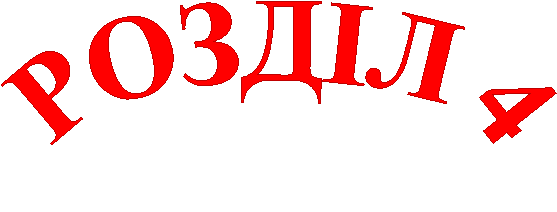
Завдання до теми
School
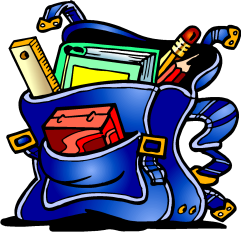
Level 1.
Read the descriptions and name the things: university, raincoat, gymnasium, tents, library
|
1. A large room with bookshelves and bookcases full of books in different languages and magazines. |
||||
|
2. A place where students study after leaving school. |
||||
|
3. Small houses where schoolchildren live when they are at a summer camp. |
||||
|
4. A coat you put on when it rains to be dry. |
||||
|
5. A large room where schoolchildren (students and other people) have their physical training lessons.
Level 2. 1. Complete the table about the subjects in the 5th and the 6th forms:
This may be done in pairs or individually. After the table is completed, the students are asked to report the results in the form of patterned sentences: In the 5th form we had … . In the 6th form we will have … .
2. Fill in the correct sentences. - What is he like? – Who’s that woman? – Sure. - What does he look like? – What is your father? – Who’s Jane?
B. Which one? 2) A. – B. He is tall and thin with short hair. 3) A. – B. He’s a pilot. 4) A. – B. He’s kind and friendly. 5) A. – B. She’s my friend.
Level 3. The Mime Game. The class is split into two groups. The groups are given different lists of school subjects. One student of each group mimes the most common activities for the given subject, and the other group has to guess the activities and the subject by asking "yes/ no" questions (e.g. Are you reading? Etc. And the last question: Is this Mathematics?). The groups are limited to not more than 7 questions to ask.
Level 4. Write a short article about your best friend for the school magazine. Write your article about your friend’s…
|
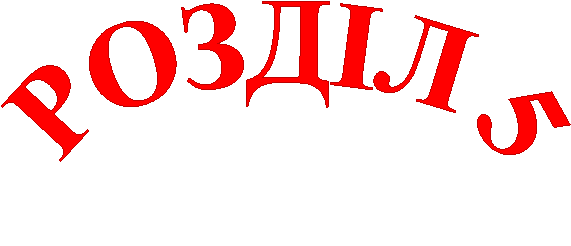
Завдання до теми
Animals
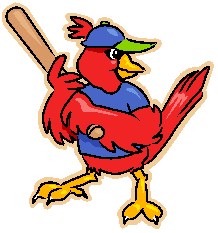
Level 1.
Find and Name the Animals
You can find words-names of animals hidden horizontally, vertically or diagonally in this puzzle:
|
|
|
|
|
|
||||||||||||||||||||||||||||||||||||||||||||||||||||||||||||||||||||||||||||||||||||||||||||||||||||||||||||||||||||||||
|
|
|
|
|
|
||||||||||||||||||||||||||||||||||||||||||||||||||||||||||||||||||||||||||||||||||||||||||||||||||||||||||||||||||||||||
|
|
|
|
||||||||||||||||||||||||||||||||||||||||||||||||||||||||||||||||||||||||||||||||||||||||||||||||||||||||||||||||||||||||||
|
|
||||||||||||||||||||||||||||||||||||||||||||||||||||||||||||||||||||||||||||||||||||||||||||||||||||||||||||||||||||||||||||
|
|
|
|||||||||||||||||||||||||||||||||||||||||||||||||||||||||||||||||||||||||||||||||||||||||||||||||||||||||||||||||||||||||||
|
|
|
|||||||||||||||||||||||||||||||||||||||||||||||||||||||||||||||||||||||||||||||||||||||||||||||||||||||||||||||||||||||||||
|
|
|
|
|
|
||||||||||||||||||||||||||||||||||||||||||||||||||||||||||||||||||||||||||||||||||||||||||||||||||||||||||||||||||||||||
|
|
|
|
|
|
||||||||||||||||||||||||||||||||||||||||||||||||||||||||||||||||||||||||||||||||||||||||||||||||||||||||||||||||||||||||
Level 2.
Complete each sentence a) to j) with one of the endings 1) to 10). Use each ending once only
|
a) A large green snake ... b) A small brown duck...
g) A black and white puppy... h) A herd of cattle... i) A dirty black lamb... j) A small ginger kitten... |
|
Level 3.
Match these words with the descriptions given
|
camel, bee, fly, rabbit, giraffe, moth, leopard, pig, shark, worm, dolphin, whale |
-
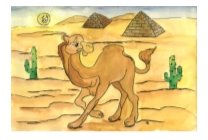 It lives in a hole in the ground and has long ears.
It lives in a hole in the ground and has long ears.
- It flies at night and is attracted to light.
- It lives in a hive and makes honey.
- It has yellow fur and a long neck.
- It is a large dangerous fish.
- It lives in the earth and we can use it when we go fishing.
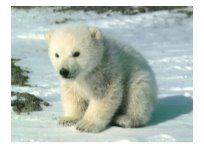 g) It is a large member of the cat family with spotted fur.
g) It is a large member of the cat family with spotted fur.
h) It is the largest kind of animal in the world.
i) It is used for transport in desert countries.
j) It is a fat pink animal which lives in a sty.
k) It is a large intelligent sea animal.
1) It is an insect which spreads diseases.
Level 4.
Find the animals hiding in the following sentences. For example:
Close the door at once! (rat)
|
falcon, horse, bear, camel, egret, deer, dog, fish, frog, goat, lion, yak, monkey, ox, snake, cow, tiger, bison, dingo, walrus, koala, сat |
|
1 |
That will be a real help. |
12 |
I’ll sing; you hum on key. |
|
2 |
She came late every day. |
13 |
I made a Xerox copy of it. |
|
3 |
He came to America today. |
14 |
She clothes naked babies. |
|
4 |
Eric owes me ten cents. |
15 |
At last, I, Gerald, had won. |
|
5 |
We made errors in each one |
16 |
Your comb is on the table. |
|
6 |
Do good workers succeed? |
17 |
We’re sending only one book. |
|
7 |
If I shout, he’ll hear me. |
18 |
He regrets having said that. |
|
8 |
If Roger comes, we’ll begin. |
19 |
If Al concentrates, he’ll win. |
|
9 |
We will go at two o’clock. |
20 |
When I withdrew, Al rushed in. |
|
10 |
Is it the sixth or seventh? |
21 |
He called Mikko a lazy boy. |
|
11 |
In April I only came once. |
22 |
It’s only a kilometre away. |
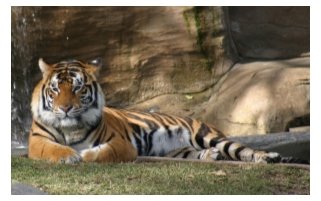
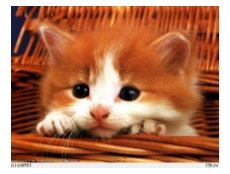
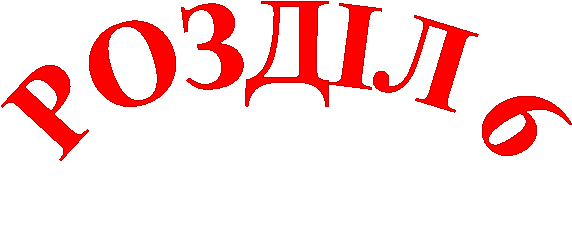
Завдання до теми
Profession

Level 1.
1. Do You Know the Profession of these Men?
|
a writer, a scientist, an artist, a spaceman, an actor, a composer, a sportsman |
|
|||
|
Tchaikovsky |
|
|||
|
Charlie Chaplin |
|
|||
|
Lewis Carroll |
|
|||
|
Michelangelo |
|
|||
|
Gagarin |
|
|||
|
Archimedes |
|
|||
|
Kasparov |
|
|||
2. What professions to your mind are important and why. Choose the right variant
|
Teachers |
bebecause they |
transport people |
|
Doctors |
|
write books. |
|
Drivers |
|
teach children. |
|
Shop assistants |
are important |
help us in the shop. |
|
Writers |
because they
|
treat people. |
|
Actors |
|
sing songs. |
|
Singers |
|
play in the theatre and films. |
|
Dancers |
|
fly into space. |
|
Musicians |
|
dance. |
|
Spacemen |
|
build houses. |
|
|
|
compose and play music. |
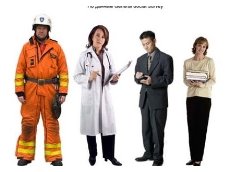
Level 2.
Listen to some short texts and guess the professions.
- Jane works in a hospital. She helps people to be healthy and fit. She usually wears a white gown and she likes it, (a doctor)
- Stephen works on a big farm. He looks after horses. He likes to be on fresh air and ride his horses, (a farmer)
- Helen works in a laboratory. She does experiments. It is interesting and sometimes dangerous to do this work, (a scientist)
- Fred works in the fire station. He puts fire out and rescues people. He has to be strong, quick and smart to be good in his profession, (a fire fighter)
- Judy works in a shop. She sells jeans and T- shirts. She likes to help and advise people to choose different clothes, (a shop assistant)
- John works in a spaceship. He had to train a lot and now he is in a good physically form. He flies around the Earth, (a spaceman)
-
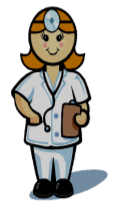 Peter works at school. He teaches Ukrainian language and literature. He thinks that every Ukrainian has to know his mother tongue and literature of native writers and poets, (a teacher)
Peter works at school. He teaches Ukrainian language and literature. He thinks that every Ukrainian has to know his mother tongue and literature of native writers and poets, (a teacher)
Level 3.
Try to guess the word in each sentence.
1. A man makes an operation in the hospital. Seven letters, first letter – s, last
letter – n.
2. A woman treats a tooth of a patient. Seven letters, first letter – d, last letter – t.
3. A man gets in touch with science. – nine letters, first letter – s, last letter – t.
4. A man plays the different musical instruments. Eight letters, first letter – m, last letter – n.
Level 4.
Write the article for a newspaper about the most important profession of future.
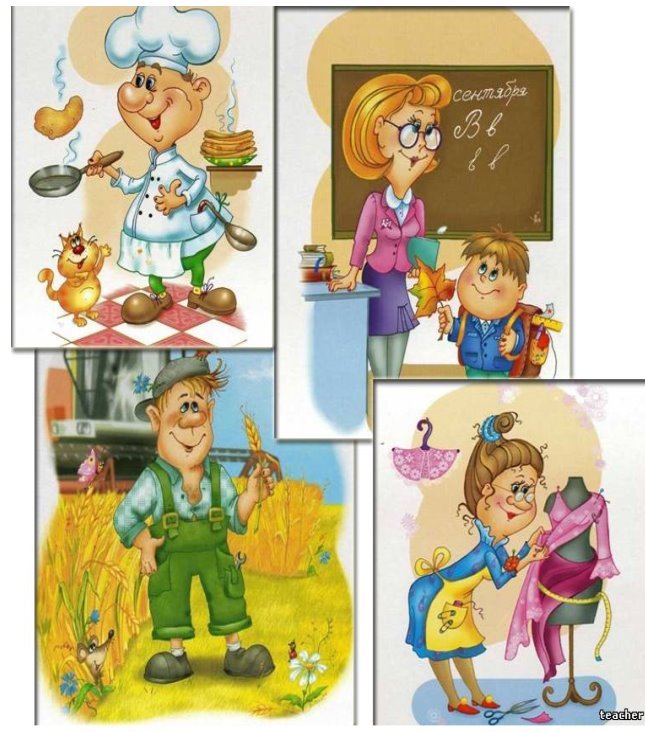
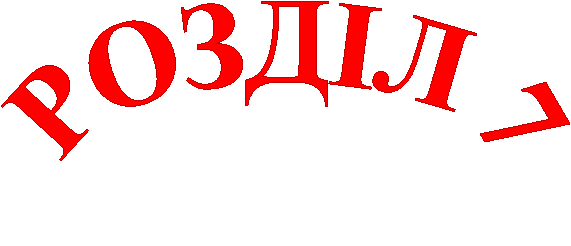
Завдання до теми
Clothes
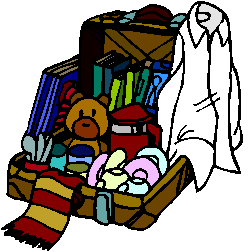
Level 1
1. Find these people in the picture. What are they doing?
- a boy in a checked shirt and trainers
- a girl in a flowery dress
- a girl in dark-blue jeans
- a man wearing dark-brown boots
- a man wearing a light-blue uniform
- a woman wearing a polka-dotted scarf
- a girl in a striped skirt
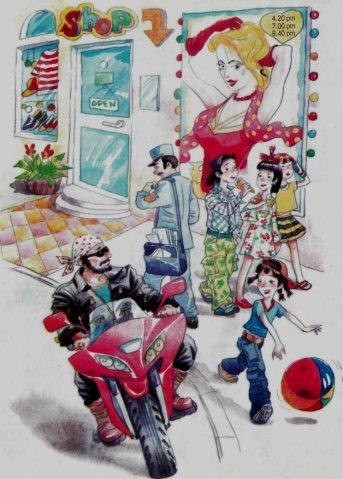
2. Underline the odd word in each line.
milk, cream, cheese, flower
biscuits, cakes, meat, chocolates
to buy, to write, to sell, to pay
market, supermarket, bakery, post office
Level 2
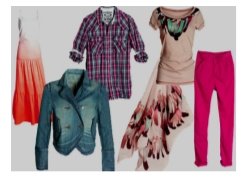 1. Read the description and name the answers: trousers, coat, old, door, eyes, cap, fair, socks, shoes, chair
1. Read the description and name the answers: trousers, coat, old, door, eyes, cap, fair, socks, shoes, chair
|
|
|
|
|
|
|
|
|
|
2. Read and choose the right picture.
a. We have to wear a school uniform at our school. I wear a green jacket, a grey jumper? Grey trousers and black shoes. We have to wear a white shirt, but worst of all we have to wear a tie – a grey and green tie.
b. Our school colours are blue and yellow. In the winter I wear a blue jacket, a blue skirt, a yellow blouse and a blue jumper. We have to wear a blue and yellow tie, too, and a blue hat. It’s summer now, so we can wear a yellow dress or a blue dress (mine’s blue). We don’t have to wear a tie, but we still have to wear the hat. We can wear tights or white socks and black shoes or sandals.
c. At the weekends I wear jeans and a T-shirt. This is my favourite T-shirt. It’s yellow. I also wear an anorak and brown boots. Do you like my red braces? Good, aren’t they?
d. At the weekend I like to wear lots of different things: sometimes I wear jeans or a skirt or a dress. I’m wearing shorts at the moment, because the weather’s warm. they’re dark green. My T-shirt is green and white and my trainers are yellow.
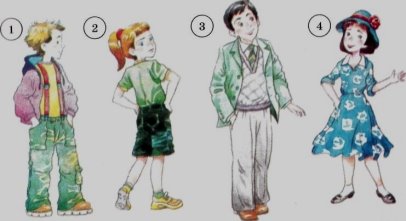
Level 3
Make up questions starting them with the interrogative words in brackets.
- Mother usually buys all necessary goods. (Who?)
- The family buys vegetables at the market. (Where?)
- We can buy sweets and chocolates at the confectioner store. (What?)
- We have got a bakery near our house. (Who?)
- It is convenient to do shopping at the supermarket in any weather. (When?)
Level 4
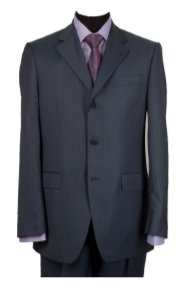 1. On a piece of paper, write what you are wearing at the moment. Give the paper to the teacher to read out. Can other students identify you?
1. On a piece of paper, write what you are wearing at the moment. Give the paper to the teacher to read out. Can other students identify you?
2. Find and correct mistakes in each sentence.
Each large city have got a plenty of department stores.
We can sees clothes in the shop windows.
Customers buys footwear in the shoe department.
Men has got a good choice of suits.
All woman like visiting their clothing department.
It are typical for most women to get crazy about clothes.
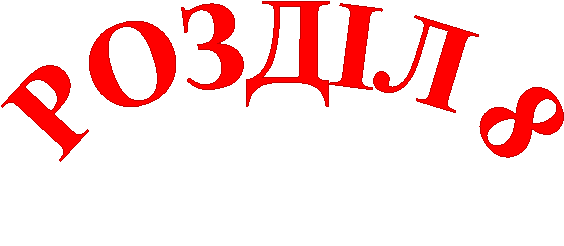
Завдання до теми
Health. Illness. Disease
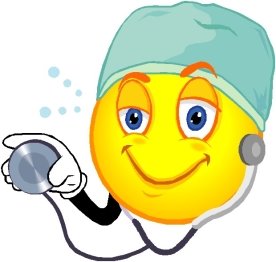
Level 1
|
f) makes a man healthy, wealthy and wise |
|
|
|
Match the parts of the proverbs about health
Level 2
1. Medical staff and patients
|
a) patient |
|
b) surgeon |
|
c) out-patient |
|
d) in-patient |
|
e) medical student |
|
f) casualty |
|
g) nurse |
|
h)general practitioner |
|
i)specialist |
|
j) midwife
|
2. Doctor's surgeries and hospitals
Filling gaps: thermometer, ward, prescription, operation, stethoscope, pulse, receptionist, appointment, chemist, symptoms, examine, treatment, waiting room, temperature.
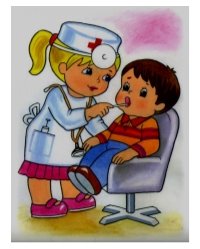 When I go to the doctor, I tell the 1 my name and take a seat in the 2. My doctor is very busy so I have to make an 3 before I go to see him. He asks me what's wrong with me, I tell him the 4 of my illness, for example, high temperature, difficulty in breathing, or pains, and then he will usually 5 me. He'll listen to my heart with his 6, he'll hold my wrist to feel my 7, he'll take my 8 with his 9. The problem is usually something simple and he might give me a 10 for some medicine, which I take to the 11 . Of course, if I needed more serious 12, I'd have to go to the hospital. There I'd be put in bed in а 1З with ten or twenty other people. If there were something seriously wrong with me, I might need an 14.
When I go to the doctor, I tell the 1 my name and take a seat in the 2. My doctor is very busy so I have to make an 3 before I go to see him. He asks me what's wrong with me, I tell him the 4 of my illness, for example, high temperature, difficulty in breathing, or pains, and then he will usually 5 me. He'll listen to my heart with his 6, he'll hold my wrist to feel my 7, he'll take my 8 with his 9. The problem is usually something simple and he might give me a 10 for some medicine, which I take to the 11 . Of course, if I needed more serious 12, I'd have to go to the hospital. There I'd be put in bed in а 1З with ten or twenty other people. If there were something seriously wrong with me, I might need an 14.
3. Choose the necessary word
|
aches |
hurts |
lung cancer |
|
||
|
asthma |
myself |
heart attack |
|||
|
disease |
pain |
prescription |
|||
|
stomach-ache |
|||||
|
1. I hit my hand on the desk and it really ……………………………. . |
|||||
|
2. They say she died of a ……………………….. . |
|||||
|
3. She had some apples that were not ready to eat and now she’s got …………….. . |
|||||
|
4. I’ve got this terrible ……………… in my neck from sleeping in the wrong position. |
|||||
|
5. He died of ………………….. even though he never smoked a cigarette in his life. |
|||||
|
6. I went to the doctor, and she gave me a ……………………. for some medicine. |
|||||
|
7. Pollution makes her ……………… worse and it’s difficult for her to breathe. |
|||||
|
8. There are different forms of hepatitis; one is more serious ……………. than the other. |
|||||
|
9. I hurt ……………… when I fell off that chair. |
|||||
|
10. My back …………………. from sitting at the computer all day. |
|||||
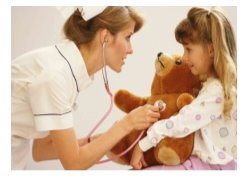 4. Read Ann's conversation with her teacher and complete the letter.
4. Read Ann's conversation with her teacher and complete the letter.
Mr. Arnold: Hello, Ann. Where were you last week?
Ann: Good morning, Mr. Arnold. I was in hospital, Sir.
Mr. Arnold: Oh dear. What was the matter?
Ann: I cut my leg. Mr. Arnold: How did you do that?
Ann: I fell off my bike. I can't walk very well. So I can't do games. Here's a letter from my Mum.
|
|
|
20 Barton Road, Manchester |
|
Dear Mr. Arnold! |
|
|
|
Ann |
|
week, she was |
|
|
. She |
|
|
and |
|
. She |
|
|
|
|
|
Yours sincerely, G. Miles |
|
|
5. Divide the words into categories:
A rush, eye drop, a cough, flu, a sling, a bandage, tablets, a sore throat, earache, an injection, an infection, a swollen ankle, a sprain, medicine, a plaster.
|
Illness |
Treatment |
|
|
|
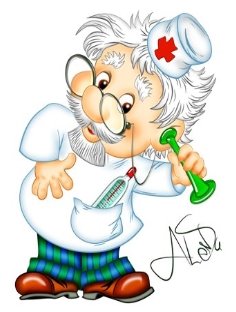
Level 3.
1. Complete the conversation at the doctor's. What does Peter say?
Dr Robertson. Hello, you must be Peter Jones. What's the problem?
Peter.(l)_
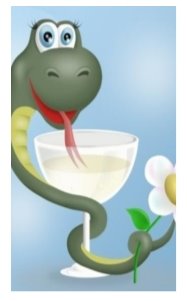 Dr. Rоbertsоn. Oh yes, it's the right one, isn't it? Where does it hurt?
Dr. Rоbertsоn. Oh yes, it's the right one, isn't it? Where does it hurt?
Peter. (2)____
Dr Robertson. Can you move it?
Peter.(3)_ ,
Dr Robertson. Does it? And how did you do this, Peter?
Peter. (4)_
Dr Robertson. Did you leave the match when that happened?
Peter. (5)____
D r. Robertson. That wasn't a very good idea, was it?
Peter.(6)_
Dr Robertson. It's not that bad! But don't play any football for two weeks.
Peter. Right, I won't.
- I suppose not. Will I need to go hospital?
- The left one's fine.
- I was playing football this morning and I feel badly.
-
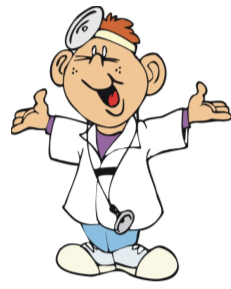 It's my leg, doctor, it really hurts.
It's my leg, doctor, it really hurts.
- How long will it take?
- The pain's here, just above my foot.
- Well, I wanted to, but I didn't.
- I can, but it hurts when I walk.
2. Use the sentences A-H to complete the dialogues.
A) Thank you. Oh, and something else.
B) How often can I use them?
C) Could I have something for sunburn, please? My back is really burnt.
D) What do you have for tired eyes?
K) Oh, no. I hate the drill!
F) What's that?
G) Well, I've got toothache. .
H) Oh, OK. As long as it's not a needle. I hate needles.
A. Good morning. How can I help you?
B. (l)__
A. I suggest you use this skin cream. You apply it twice a day.
B. (2) _
A. Yes, madam?
В. (3) _
А. Try some of these eye drops. They're excellent!
B. (4) _
A. Whenever your eyes arc sore. But you mustn't use them more than three times a day.
B. OK, thank you.
A. Hello, Judy. Come and sit down. What's the problem?
B. (5) _
A. OK, lot mc have a look. Open wide.
B. (6) __
A. It's just a mirror. See? You needn't be afraid.
B. (7)
A. Hmm... I'm afraid you need to have a filling. We must do it now before it gets worse.
B. (8) _
A. Don't worry. You won't feel a thing!
Level 4
Describe in writing your last visit to the doctor.
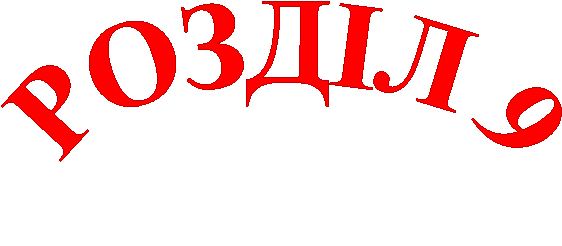
Завдання до теми
Shopping

Level 1.
Make up a shopping list of necessary products for (a birthday party, a picnic etc.) using the following expressions
|
a bottle of milk; a tin of sardines; a box of matches; a bottle of mineral water (wine, oil) |
a slice of cheese (bread, meat); a bar of chocolate (soap); a pinch of salt; a dozen of eggs |
|
a peace of cake; a peace of paper; a block of wood; a lump of sugar |
a tube of toothpaste; a sheet of paper; a packet of biscuits; a jar of jam |
Level 2.
Complete this grid (you may use a dictionary):
|
Outlet |
Size |
Product |
|
supermarket |
large or small |
food, household goods |
|
kiosk |
small |
sandwich, postcards, cigarettes |
|
department store |
large |
|
|
market |
|
food, flowers, clothes |
|
butcher’s |
|
|
|
baker’s |
|
bread |
|
dairy’s |
|
|
|
grocer’s |
|
|
|
fishmonger’s |
|
|
|
greengrocer’s |
|
|
|
chemist’s |
|
|
|
newsagent’s |
|
|
Level 3.
1. Read the dialogue and choose the necessary word
|
counter |
could |
goods |
|
basket |
trolley |
shopping |
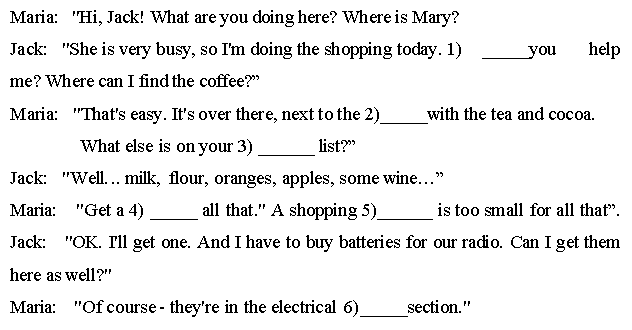
3. Read the dialogue and put the sentences into the right order.
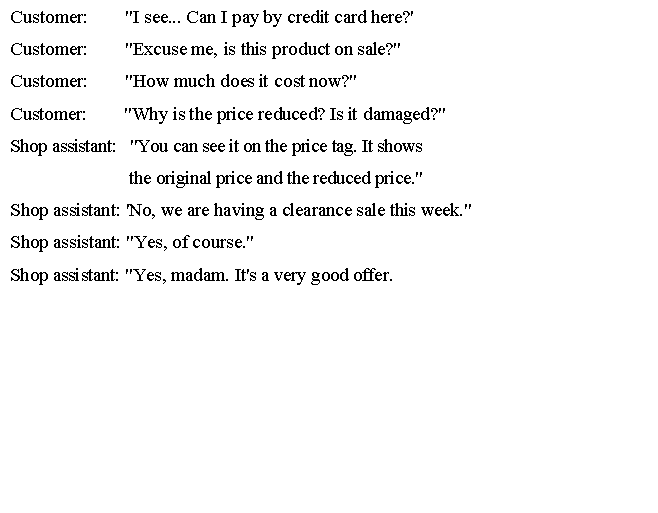
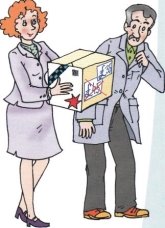
Level 4.
Answer the questions
- Excuse me. Where can I find the frozen food? - / it / be / over / there / in / aisle / 5/.
- What is on your shopping list? - /I / have / buy / only / bread / and / milk /.
- Have you got a trolley? - / yes /I / have /.
- Who does the shopping in your family? -/ usually / my wife / but / when / she / be / busy /I / go / shopping /.
- How much does it cost? - / price / be / on / price tag /.
- Is this product on sale? - / yes / it / be /.

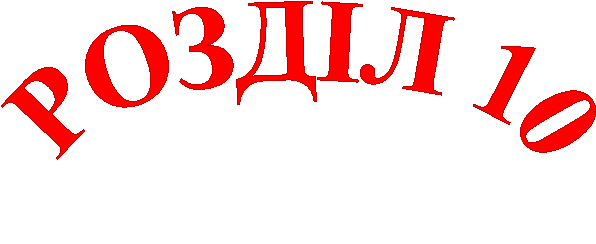
Завдання до теми
Sport and Games
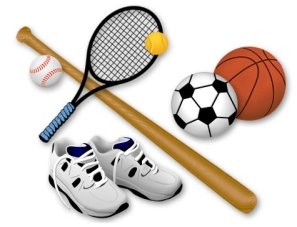
Level 1
Put together the jumbled word combinations pieces.
-
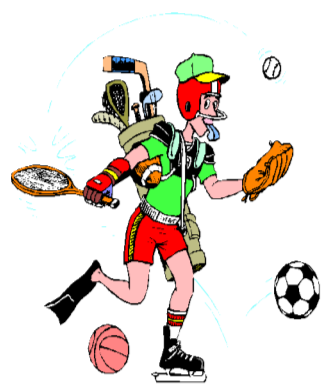 discus- jumping
discus- jumping
- horse- hockey
- mountain- hockey
- shot- athletics
- weight- throwing
- ice ball
- pole lifting
- track and field putting
- basket- skiing
- field racing
Level 2.
Find the word by its definition.
1. Fifteen players in each team. a) onlookers
2. A few runners run on the track must jump up b) boxers some obstacles.
3. A lot of people come to the stadium to watch c) coach some kind of competition.
4. Two participants are in the ring d)rugby
5. A kind of player who defends the gates e) referee
during the game.
6. A kind of person who coaches a team. f) goalkeeper
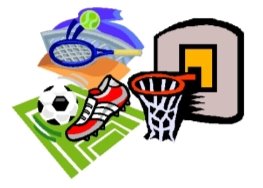 7. A kind of person who referee a game. g) hurdles
7. A kind of person who referee a game. g) hurdles
Level 3.
In each group of the words find this word with the general meaning
Pattern: a) pitch, b) penalty area, c) centre circle, d) football, e) corner flag, f) goal area, g) penalty spot, h) gates.
Answer: d) football.
1. a) clothes, b) short sleeved vest, c) shorts, d) knee length socks, e)gloves.
2. a) helmet, b) pad, c) stick, d) ice-hockey player, e) gloves, f) face guard,
g) rubber puck.
3. a) ball, b) basketball, c) ring, d) target rectangle, e) restricted areas, f) end line,
g) backboard.
4. a) wheel, b) rudder, c) racing cycle, d) chain, e) tyre, f) pump, g) saddle.
5. a) oars, b) rudder, c) seats, d) boat, e) hull, f) keel.
6. a) rope, b) swimming, c) lane, d) starting! block, e) finish line.
7. a) lorries, b) cars, c) motor cycle, d) road, e) onlookers, f) motor racing.
8. a) discus, b) athletes, c) place, d) field, e) referees, f) discus-throwing.
9. a) motor cycles, b) drivers, c) icy sheet, d) road, e) onlookers, f)speedway.
Level 4.
Describe in writing form how you visit the stadium to see a home football match.
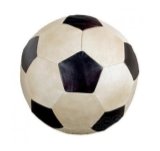 Use the following word combinations (a spare ticket, to have a bite, to referee, to be not quick enough on the run, an accurate pass, the second half-time, to watch with bated breath, to share impressions, to congratulate on the victory).
Use the following word combinations (a spare ticket, to have a bite, to referee, to be not quick enough on the run, an accurate pass, the second half-time, to watch with bated breath, to share impressions, to congratulate on the victory).
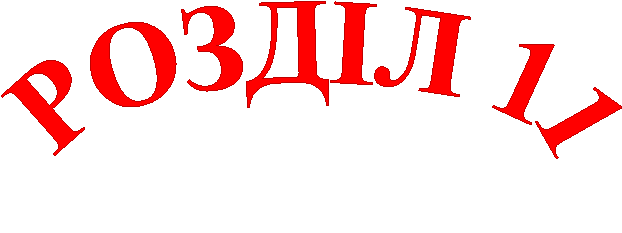
Завдання до теми
The Role of Mass Media
in our Life

Level 1.
1. A Picnic in the Country. Look at the picture. Read the statements and determine what statement is true and what is false?
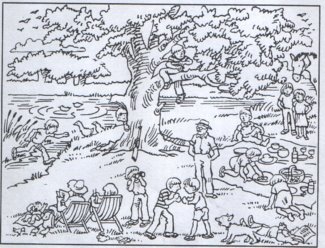
|
|
Statement |
T |
F |
|
Statement |
T |
F |
|
1 |
Someone is reading. |
|
|
11 |
Someone is crying. |
|
|
|
2 |
Someone is swimming. |
|
|
12 |
Someone is shaving. |
|
|
|
3 |
Someone is driving. |
|
|
13 |
Someone is hurrying. |
|
|
|
4 |
Someone is climbing. |
|
|
14 |
Someone is laughing. |
|
|
|
5 |
Someone is drinking. |
|
|
15 |
Someone is hiding. |
|
|
|
6 |
Someone is riding. |
|
|
16 |
Someone is standing. |
|
|
|
7 |
Someone is resting. |
|
|
17 |
Someone is leaving. |
|
|
|
8 |
Someone is fighting. |
|
|
18 |
Someone is smoothing. |
|
|
|
9 |
Someone is jumping. |
|
|
19 |
Someone is watching. |
|
|
|
10 |
Someone is sewing. |
|
|
20 |
Someone is running. |
|
|

2. Please make up the half-cutted words.
The teacher has prepared the words written on the cards. Then these cards are cutted on two parts. All parts are mixed on the table. Pupils make up the half-cutted words. For example: cli-; beau-;-mate; -tiful; - climate; beautiful
|
go- |
-ver |
|
sil- |
-son |
|
sea- |
-rbance |
|
plea- |
-tives |
|
mo- |
-ver |
|
co- |
-gry |
|
bre- |
-od |
|
an- |
-ovel |
|
diam- |
-ern |
|
distu- |
-tle |
|
rela- |
-akfast |
|
lit- |
-ther |
|
n- |
-ond |
|
mod- |
-sure |
3. Choose the suitable answer for every question
|
1) Thanks very much. |
a) Yes, help yourself. |
|
2) Anything else? |
b) Never mind, don’t worry. |
|
3) Can I help you? |
с) About twenty minutes. |
|
4) I'm sorry I’m late. |
d) I'm being served, thanks. |
|
5) What’s the matter? |
e) No, go ahead. |
|
6) How long does it take? |
f) Yes. Quarter to seven. |
|
7) Have a nice weekend. |
g) Sorry, I don't smoke. |
|
8) Could I leave a message? |
h) Not at all. |
|
9) Have you got a light? |
i) Yes, you too. |
|
10) Could I borrow your pen? |
j) No, that’s all, thanks. |
|
11) Have you got the time? |
k) Nothing. Why? |
|
12) Do you mind if I open the window? |
l) Yes, of course, I’ll just get a pen. |
4. Match the beginnings of the sentences in list A with their endings in list B
|
A |
B |
|
1) Dreams are caused ... |
a) that dreams could foretell the future. |
|
2) Dreams express our ... |
b) since ancient times. |
|
3) Dreams can tell you if ... |
c) make up about 25% of the nights sleep. |
|
4) Dreams have aroused our curiosity ... |
d) by the food you eat. |
|
5) Four thousand years ago people believed ... |
e) mean quite a lot. |
|
6) An ordinary dream can ... |
f) you’re going to be ill. |
|
7) Scientific work on dreams has ... |
g) we do not remember our dreams. |
|
8) It has been discovered that we all dream, even if ... |
h) secret desires. |
|
9) A person has four or five periods of ... |
i) only a short history. |
|
10) Dreams occur roughly every 90 minutes and ... |
j) dream sleep during the night. |
Level 3.
1. Give your opinion What are the good points and bad points about television? For example:
|
Good points |
|
Bad points |
|
1. It keeps you informed about the rest of the world. |
1. It stops people talking and visiting theatres. |
|
|
2. It educates and brings up. |
2. Television is “a chewing-gum” for our eyes. |
|
|
3. |
3. |
|
|
4. |
4. |
Level 4.
Make up two stories “Last Time on Ice” and “Playing Golf”
a) A very stout woman was very fond of skating.
b) A sportsman was playing over a golf course, and playing very badly.
c) A young man came skating up to her and helped her to rise.
d) And as she was very heavy and stout she was unable to get up.
e) Once she went down to a lake to spend a few hours on the ice.
f) “Dear, dear!” he remarked at last,
g) She sat on the ice looking sad.
h) Very soon she had a bad fall.
i) “There can’t be worse players than myself!”
j) “Is it your first time on the ice?” he asked.
k) “It is not my first but it will be my last, thank you”.
l) “Maybe there are worse players”, said the man who watched him play,
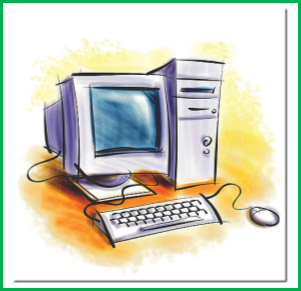 m) “No”, she answered.
m) “No”, she answered.
n) “but they don’t play”.
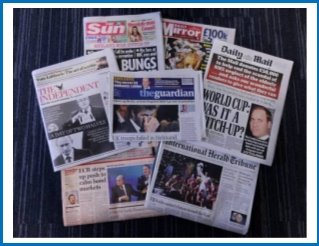
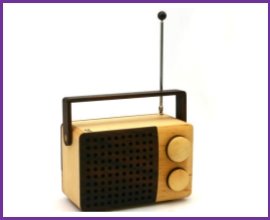
Використана література
- Topical texts. Forms 5 – 9 / Упоряд. В.І.Томаєва. – Х.: Країна мрій, 2008. – 288 с. – Англ.
- Биркун Л.В. Наша англійська: Підруч. для 7 кл. загальноосвіт. навч. закл. (6-ий рік навчання) / Л.В.Биркун, Н.О.Колтко, С.В.Богдан; За наук. ред. П.О.Беха. – К.: Освіта, 2007. – 224 с.: іл..
- Биркун Л.В. Наша англійська: Підруч. для 6 кл. загальноосвіт. навч. закл. (5-ий рік навч.) . – К.: Освіта, 2006. – 208 с.: іл..
- Вишневський О.І. Робота в парах на уроках англійської мови. Посібник для вчителя. – К.: Рад. шк., 1987. – 136 с.
- Гуманкова О.С. Диференційований підхід у навчанні на уроках іноземної мови. – Х.: Вид. група «Основа», 2009. – 108 [4] с.
- Доценко Ірина, Євчук Оксана. Збірник вправ з англійської мови. – Тернопіль: Підручники і посібники, 2004. – 128 с.
- Заслонкін В. В. Уроки англійської мови. 6 клас (За підручником Л.В.Биркун) / В.В. Заслонкін, Н.В.Самойлюк. – Х.: Вид. група «Основа», 2010. – 160 с.
- Казачінер О.С. Сучасні форми та методи навчання англійської мови. – Х.: Вид. група «Основа», 2010. – 112 с.
- Калініна Л.В., Самойлюкевич І.В. English. Your English Self: Підручник для 9-го класу загальноосвітніх навчальних закладів (8-й рік навчання) / Л.В. Калініна, І.В. Самойлюкевич. – К.: Наш час, 2009. – 272 с.
- Калініна Л.В., Самойлюкевич І.В. English. Your English Self: Підручник для 8-го класу загальноосвітніх навчальних закладів (7-й рік навчання) / Л.В. Калініна, І.В. Самойлюкевич. – К.: Наш час, 2008. – 208 с.
- Карпюк О.Д. Англійська мова: Підручник для 9-го класу загальноосвітніх навчальних закладів. – Тернопіль: «Видавництво «Астон», 2009. – 240 с.: іл.
- Карпюк О.Д. Англійська мова: Підручник для 8-го класу загальноосвітніх навчальних закладів. – Тернопіль: «Видавництво «Лібра Терра», 2012. – 200 с.: іл.
- Карпюк О.Д. Англійська мова: Підручник для 6-го класу загальноосвітніх навчальних закладів. – Тернопіль: «Видавництво «Лібра Терра», 2008. – 192 с.: іл.
- Куварзіна М.В. Англійська мова: Нестандартні уроки. 5 – 11 класи. – 2-ге вид., випр. і доп. – Х.: Ранок, 2010. – 176 с.
- Любченко О.С. Усі уроки та дидактичні матеріали з англійської мови. 6 клас./О.С.Любченко, І.О.Оніщенко. – Х.: Видавнича група «Основа»: «Тріада +», 2007. – 240 с.
- Миргород Н.В. Тестові та перевірочні завдання з англійської мови / Н.В.Миргород, С.С.Якименко, О.В.Коваленко-Будянська. – Х.: Вид. група «Основа», 2010. – 78 [2] с.
- Самойлюк Н.В. Уроки англійської мови. 8 клас (За підручником А.Несвіт) /Н.В.Самойлюк, В.В. Заслонкін. – Х.: Вид. група «Основа», 2011. – 111 [1]с.
- Самойлюк Н.В. Уроки англійської мови. 7 клас (За підручником Л.В.Биркун, Н.О.Колтко, С.В.Богдан) / Н.В.Самойлюк, В.В. Заслонкін. – Х.: Вид. група «Основа», 2010. – 176 с.
-
Сподобалось, що завдання цікаві та диференційовані. Ця робота однозначно знадобиться вчителю у своїй професійній діяльності.
-
Супер!


про публікацію авторської розробки
Додати розробку

